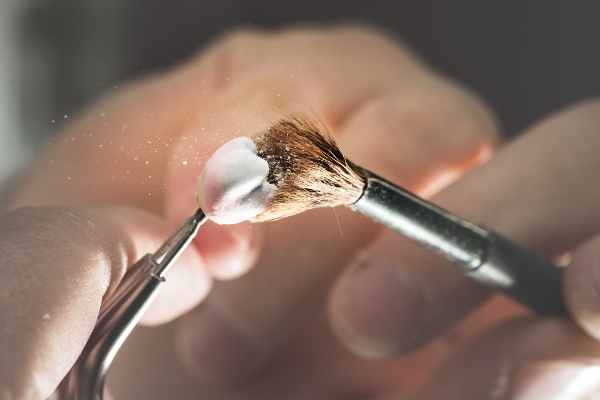4 Tips for Preventing Periodontal Disease

One of the most prevalent oral health issues affecting people is periodontal disease, otherwise called gum disease. Despite the prevalence of gum disease, it is preventable. Periodontitis, which is the advanced stage of periodontal disease, starts with bacterial growth in the mouth. If untreated, it could destroy gum tissues and lead to tooth loss.
The effects of periodontal disease
Gingivitis, the initial stage of gum disease, is less severe and only causes gum inflammation. With prompt treatment, gingivitis will not progress into periodontitis. A person with periodontitis may notice the inner layer of the gums recedes from the teeth to create gum pockets. These pockets tend to accumulate debris and plaque and can quickly become infected. The body’s immune system will naturally attempt to fight the spread of bacteria along the gum line. As the body fights back, you may see inflammation and pus.
As the condition worsens, the pockets will deepen and continue to destroy the gum tissues and bone. Once this happens, the teeth will no longer get the necessary support. The will become loose and may eventually fall out.
Tips to prevent periodontal disease
To prevent the progression of periodontal disease and improve your oral health, the tips below will help.
1. Brush your teeth regularly
Brush your teeth twice daily using a soft-bristled brush. The American Dental Association says you should take at two minutes to brush. Ensure you reach the nooks and crannies of the mouth. Brush gently along the gum line at a 45-degree angle and avoid vigorous brushing to prevent damage to the teeth. Do not forget to brush all the surfaces of the mouth, including the tongue.
2. Floss daily
Flossing is required to reach all the inaccessible areas of the teeth, especially the back teeth which are used for chewing and breaking down food. Flossing helps to clean debris between the teeth. For effective cleaning, you will need about 18 inches of floss. Roll the floss around a finger on both hands. Carefully glide the floss between the teeth until it is clean and free of food particles.
3. Use mouthwash
Rinsing is a great way to complement brushing and flossing. Preferably, get an antibacterial mouthwash to lower bacteria count in the mouth. Try not to swallow the liquid. Using mouthwash further cleans the mouth and is preferable when brushing or flossing is not possible. Try to buy an alcohol-free mouthwash because it can cause dryness. A dry mouth can lead to bad breath.
4. Regular dental visits
Regular visits to the dentist are essential to prevent periodontal disease. Such visits allow the dentist to monitor the teeth and gum health. If the dentist detects the presence of plaque or infection, prompt treatment will be provided to stop the condition from worsening. Such treatments include root planing and scaling, gum surgery and other gum regenerative treatments.
Take care of your gums
The most effective way to prevent the disease is to maintain proper oral hygiene and schedule regular dental checkups. If your gums are red, sore or do not seem normal, call our office to arrange a visit with the dentist.
Request an appointment here: https://www.carolinasmilesdentist.com or call Carolina Smiles Family Dental at (828) 974-3326 for an appointment in our Brevard office.
Check out what others are saying about our services on Yelp: Read our Yelp reviews.
Recent Posts
Invisalign® clear aligner trays are not just for adults; teenagers and some children can also benefit from this treatment system. Many teens prefer Invisalign® over traditional braces because of the numerous advantages it offers, including:Discreet treatment appliancesMore comfort throughout the entire processRemovable trays for improved oral hygieneWhile wearing these trays is easy and relatively effortless,…
Proper care of a dental crown is essential for maintaining its appearance, function, and longevity. A dental crown restores damaged or weakened teeth, providing durability and protection to the underlying tooth structure. Although crowns are designed to withstand chewing forces, taking specific precautions ensures their long-term success and helps maintain oral health.A dental crown acts…
If you and your child are interested in an alternative to traditional braces, Invisalign® may be just what you are looking for. It is just as effective at straightening teeth as traditional braces but has certain qualities that make it more tolerable for teenagers.It is usually preferable to wait to delay teeth straightening treatment until…
Invisalign® for teens can offer adolescents a more comfortable and more discreet option for straightening their teeth. For years, braces were one of the only options for effectively treating a crooked smile. Even though Invisalign® has been providing an alternative for decades, some people may not be familiar with who it is for and how…


